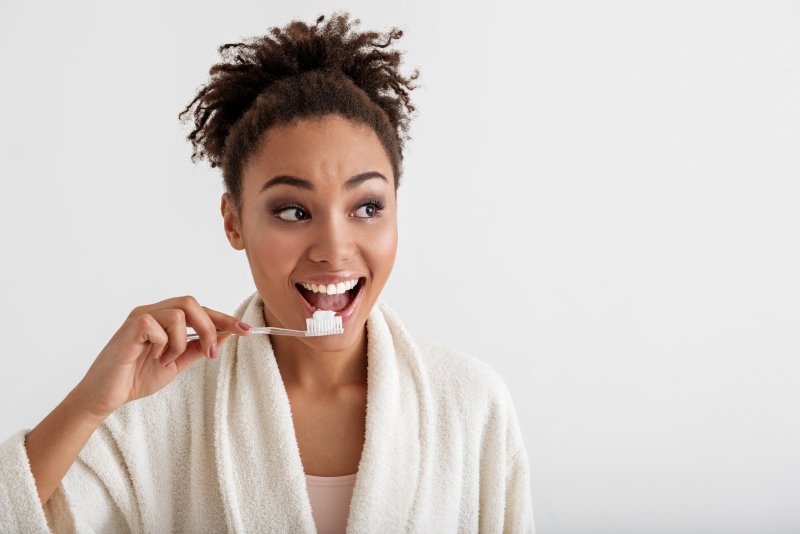
“Make sure to brush your teeth in the morning when you wake up and before you go to bed at night.” If this statement sounds familiar, it’s likely because you’ve heard it repeated throughout your life by dental professionals and your parents. You may even be saying it to your own children. But have you considered when is the best time to brush in the morning? Should you do it before you eat breakfast or after? Will it make a difference? To help solve this burning question, a dentist in Ponte Vedra Beach explains when you should start your oral hygiene routine to ensure optimal results.
The Verdict: Before or After Breakfast
Ever wonder why you wake up with “morning breath” or a not-so-pleasant taste in your mouth? The reason is that while you’re asleep, your mouth accumulates a large number of plaque-causing bacteria. Most people prefer to get rid of this foul odor and taste as quickly as possible, hence the reason for brushing immediately after getting out of bed. But won’t your mouth just get dirty after eating? In theory, yes, but depending on what you choose to consume, the plaque can more easily feed off any sugars you eat, effectively breaking down your tooth enamel.
According to researchers at the Mayo Clinic, it is actually better to brush before you eat breakfast, and here’s why:
By cleaning your teeth with fluoride toothpaste first thing in the morning, you wash away the plaque that has accumulated in your mouth overnight. You also place a protective barrier over your tooth enamel, which can be most beneficial when consuming the first meal of the day. This is especially true if you enjoy bread, pastries, dried fruit, or anything highly acidic (i.e. orange juice or coffee).
Another key component to brushing before breakfast is you activate your salivary glands, encouraging them to increase in production. This continuous flow of saliva in your mouth is beneficial to flushing out food particles and debris left behind from your breakfast as well as breaking down and killing bad bacteria.
What To Keep in Mind if You Wait to Brush
Ideally, brushing before you eat breakfast is better, but if waiting until afterward is best for you and your routine, you should be mindful of a few things to ensure your smile is not negatively impacted. These include:
- Waiting at least 30-60 minutes after you eat to brush your teeth, especially if you eat or drink something that is highly acidic. If you do it immediately after breakfast, it can cause the remnants of your breakfast to spread and cover your teeth. This will eventually weaken your tooth enamel and put you at greater risk for tooth decay and other more serious dental problems.
- While you wait to brush your teeth, drink plenty of water or chew on sugar-free gum to cleanse your mouth and remove food particles and debris from your teeth.
Brushing in the morning is always a good idea, whether you do it before breakfast or not. But if you usually wait, be sure to follow these tips so you start your day on the right foot.
About the Author
Dr. Eric Townsend earned his bachelor’s degree in Chemistry from the University of Florida and his doctorate from the Medical College of Virginia School of Dentistry. As a dentist at Ponte Vedra Complete Dentistry, he and his colleagues believe it is important to provide patients with the knowledge and tools to take care of their smiles while at home. From improving brushing techniques to knowing when to start their morning oral hygiene routine, it is this information that can help keep decay and disease from developing between appointments. If you would like some helpful tips to improve your oral habits, contact us at (904) 285-7711.



